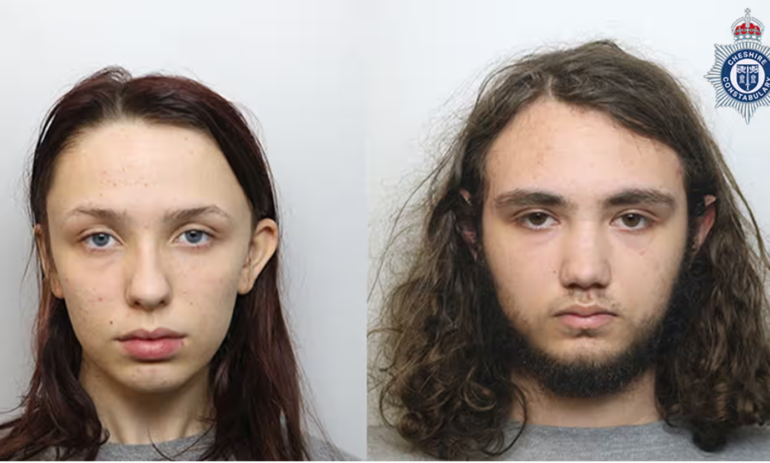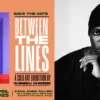Scarlett Jenkinson and Eddie Ratcliffe were partly motivated by 16-year-old victim’s transgender identity, judge says
The teenage pair who murdered Brianna Ghey have been sentenced to life in prison for an “exceptionally brutal” killing partly motivated by her transgender identity.
Scarlett Jenkinson, who was described by the judge as the “driving force” behind the murder, was sentenced to a minimum of 22 years for what the Crown Prosecution Service (CPS) said was “one of the most disturbing cases” their lawyers had ever dealt with.
Eddie Ratcliffe, a quiet and studious former champion kickboxer, was given 20 years for killing Brianna, an “out and proud” transgender girl who hoped to become a beauty therapist.
The pair, both 16, were named for the first time before the sentencing after the judge lifted reporting restrictions.
Sentencing, Mrs Justice Yip said: “You both took part in a brutal and planned murder which was sadistic in nature and where a secondary motive was hostility towards Brianna because of her transgender identity.”
She said Jenkinson was motivated by a “deep desire to kill”, and pronounced her concern on hearing that the teenager had “expressed the desire to kill again” after her conviction. She had written a new “kill list” since her detention, which included the names of some of her carers, the court heard.
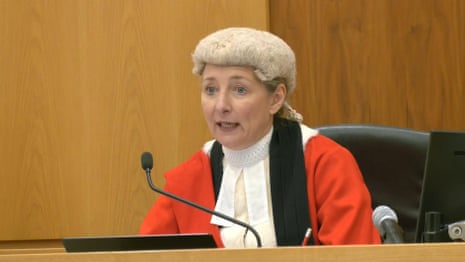
To both defendants, the judge said: “You picked Brianna because you both thought she would be an easy target.”
Yip warned the pair they may never be released if they “remain a danger”. Though Jenkinson pleaded not guilty to the murder, Manchester crown court heard that since her conviction she had admitted taking part in the stabbing, having previously blamed Ratcliffe for the murder.

She told a psychiatrist she had stabbed Brianna “repeatedly” and had found it “exciting”, and that she killed her because she thought Brianna would stop being her friend. She murdered Brianna so she would “always be with her”, the court heard.
Jenkinson, who was obsessed with serial killers, also admitted to the psychiatrist that she “intended to take parts of Brianna’s body as a token”. She had previously told Ratcliffe she wanted to keep Brianna’s “pretty eyes”.
The court heard that Brianna was stabbed 28 times, but there is no evidence that her killers took any of her body parts.
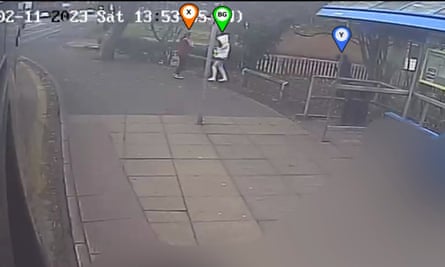
In addition, Jenkinson admitted she had tried to poison Brianna a few weeks before the murder with red ibuprofen tablets “pretending that they would get her high”.
The court heard Brianna was very ill around that time, and that her mother, Esther Ghey, thought she had appendicitis. She recalled Brianna being very sick and there were red blobs in her vomit, which she thought at the time were red grape skins.
In a statement to the court, Esther said she was devastated that her “lonely” daughter was killed by “someone we believed to be her friend. Someone that we trusted. Someone that I was so happy that she had, fearing that my child had been lonely.”
Jenkinson and Ratcliffe met, aged 11, at Culcheth high school in Warrington and stayed friends after Jenkinson moved to Birchwood high school in autumn 2022, after an incident involving her bringing cannabis edibles into class.
It was at Birchwood that Jenkinson befriended Brianna, who did not attend ordinary lessons because of problems with anxiety and an eating disorder.
Jenkinson, whose mother is a secondary school teacher, told Ratcliffe she had become “obsessed” with Brianna, and she soon put her on a list of children the teenagers wanted to kill. The others were four boys they disliked: one Ratcliffe thought was a “nonce”, another the boy considered a love rival, and two who had been mean to Jenkinson’s boyfriend.
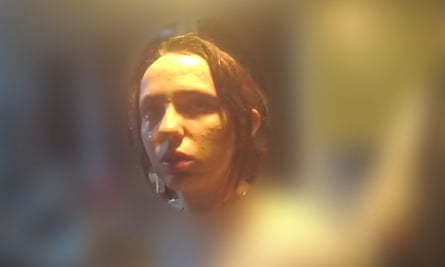
Brianna became their focus after they failed to lure one of the others out via a fake social media profile. She would be “easier” to kill, they agreed, in one of thousands of text messages exchanged in the run-up to the murder on 11 February last year.
The teenagers plotted her murder meticulously at the age of 15, with Jenkinson handwriting a plan for how, where and when they would stab Brianna. They even had a code word – “gay” – to signal the start of the attack in Culcheth Linear Park in Warrington.
They carried it out almost to the letter, stabbing Brianna 28 times before they were disturbed by a couple walking their dogs.
Ratcliffe met Brianna for the first time on the day of the murder. While planning the killing, he repeatedly referred to her not as “she” but “it”, and a “femboy thing” – and said he “just wanted to see what size dick it has”.
Yip said his messages were “transphobic” and “dehumanising”.
Giving evidence, Ratcliffe insisted he was not transphobic, and blamed the murder on Jenkinson.
But it was his hunting knife, bought on a ski trip to Bulgaria over the 2022-23 Christmas break, that was used to stab Brianna.
Police found it in his bedroom after his arrest, the day after the killing. Brianna’s DNA and his were detected on the knife. Brianna’s blood was also discovered on his shoes and coat.
There was no forensic evidence linking Jenkinson to the weapon, and no spots of blood were found on her clothing. In her post-conviction confession, she claimed that was because they had been washed.
In the dock, the teenagers never looked at each other and were separated by security guards and intermediaries employed to ensure they understood the court process. Neither reacted as the sentence was passed, with Jenkinson playing with a green fidget toy.
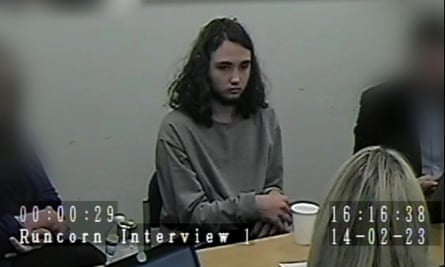
An initial psychiatric assessment of Jenkinson suggested she had traits of autism and ADHD, but the psychiatrist changed his diagnosis post conviction, saying she had “a severe form of conduct-dissocial disorder, one of the features of which is having no empathy”.
Yip said this provided “some explanation” for how Jenkinson could commit such a “dreadful murder” but did not lower her culpability.
She told the teenager: “Scarlett, I have concluded that the primary motivation for Brianna’s murder was your deep desire to kill. The messages reveal your fantasies and show your sadistic motives. Brianna’s murder was exceptionally brutal.”
After his arrest, Ratcliffe was diagnosed with autism and the judge accepted that his social skills were “not as developed as most people of your age”. But she said “Your autism cannot provide any real excuse for the offence”.
Manchester crown court heard that after he was charged with Brianna’s murder, Ratcliffe stopped talking. He was diagnosed with “selective mutism”, speaking only to his mother. The trial was delayed for months as his legal team struggled to take instructions from him.
When it eventually began, at the end of last year, he was given special dispensation by the judge to type his evidence, telling the jury that science was his favourite subject at school and he had wanted to study microbiology at university.
Giving evidence, Jenkinson admitted to an obsession with what her barrister called “dark materials” but said it was all fantasy that she had never acted on.
She had downloaded a special browser on her phone to watch “real” murders and torture on the dark web, and kept detailed notes about serial killers including Richard Ramirez, the “Night Stalker”.
Nicola Wyn Williams, a senior prosecutor at the CPS, said: “This sentencing hearing concludes one of the most disturbing cases that the Crown Prosecution Service has had to deal with.
“At just 16, Scarlett Jenkinson and Eddie Ratcliffe are convicted killers, responsible for the brutal murder of a vulnerable young girl who thought they were her friends. They have been given a life term of imprisonment and have shown no remorse.”
Esther Ghey said of the killers: “I have moments where I feel sorry for them, because they have also ruined their own lives, but I have to remember that they felt no empathy for Brianna when they left her bleeding to death after their premeditated and vicious attack, which was carried out not because Brianna had done anything wrong, but just because one hated trans people and the other thought it would be fun.”
